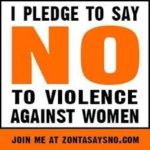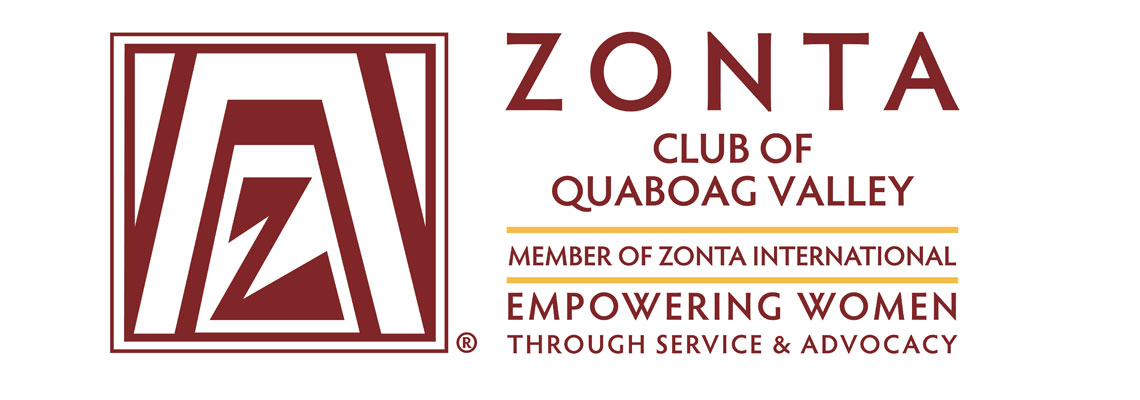Zonta Says No! and 16 Days of Activism
16 Days Campaign Profile

 What is the 16 Days of Activism Against Gender-Based Violence Campaign?
What is the 16 Days of Activism Against Gender-Based Violence Campaign?
The 16 Days of Activism Against Gender-Based Violence is an international campaign originating from the first Women’s Global Leadership Institute coordinated by the Center for Women’s Global Leadership in 1991. Participants chose the dates November 25- International Day Against Violence Against Women- and December 10- International Human Rights Day- in order to symbolically link violence against women and human rights and to emphasize that such violence is a violation of human rights. This 16-day period also highlights other significant dates including November 29, International Women Human Rights Defenders Day, December 1, World AIDS Day, and December 6, which marks the Anniversary of the Montreal Massacre. The 16 Days Campaign has been used as an organizing strategy by individuals and groups around the world to call for the elimination of all forms of violence against women by:
raising awareness about gender-based violence as a human rights issue at the local, national, regional and international levels
strengthening local work around violence against women
establishing a clear link between local and international work to end violence against women
providing a forum in which organizers can develop and share new and effective strategies
demonstrating the solidarity of women around the world organizing against violence against women
creating tools to pressure governments to implement promises made to eliminate violence against women
Over 5, 179 organizations in approximately 187 countries have participated in the 16 Days Campaign since 1991!
What is violence against women?
“Violence against women is perhaps the most shameful human rights violation. And it is perhaps the most pervasive. It knows no boundaries of geography, culture or wealth. As long as it continues, we cannot claim to be making real progress towards equality, development, and peace.”
– Kofi Annan, former Secretary-General of the United Nations, “A World Free of Violence Against Women,” United Nations Global Videoconference, 8 March 1999
Violence against women is a pervasive human rights violation, a public health crisis, and an obstacle to equality, development, security and peace. The terms “violence against women” and “gender-based violence” are used to refer to a range of abuses committed against women that stem from gender inequality and women’s subordinate status in society relative to men. In 1993, the United Nations Declaration on the Elimination of Violence Against Women defined violence against women as “any act of gender-based violence that results in, or is likely to result in, physical, sexual, or psychological harm or suffering to women, including threats of such acts, coercion or arbitrary deprivation of liberty, whether occurring in public or in private life.” This definition includes violence occurring in the family, within the general community, and violence perpetrated or condoned by the State. Forms of gender-based violence include, but are not limited to: domestic violence, sexual abuse, rape, sexual harassment, trafficking in women, forced prostitution, and harmful practices. In addition, women’s multiple and intersecting identities based on factors such as class, race, ethnicity, religion, descent, sexuality and citizenship status can serve to increase their subordination and vulnerability to violence. It is estimated that one in three women throughout the world will suffer some form of gender-based violence in her lifetime.
For more information, see Heise, L., M. Ellsberg and M. Gottemoeller. 1999. Ending Violence Against Women. Population Reports, Series L, No. 11. Baltimore: Johns Hopkins University School of Public Health, Population Information Program.
What is the human rights framework?
“By placing women’s concerns and aspirations within a human rights paradigm, we have made an undeniable proposition: that women are human and that, on that basis, they claim and are entitled to the fundamental rights and freedoms inherent in all humanity.”
– Florence Butegwa, “Women 2000: A Symposium on Future Directions for Women’s Human Rights,” New York, June 2000
Using a human rights-based approach to fight violence against women is a key component of the 16 Days Campaign. Activists have used the human rights framework to transform how violence against women is understood around the world. The human rights framework asserts that women are entitled to the protection, promotion and fulfillment of their human rights as one half of humanity. The framework provides important language and tools to “define, analyze, and articulate women’s experiences of violation and to demand redress in ways already recognized by the international community.”[1] Abuses against women can no longer be relegated to the so-called “private” sphere, and accountability is demanded of States to uphold commitments to women’s human rights made in a number of treaties and international documents within the United Nations system. A human rights-based approach provides a common framework that brings together women with diverse experiences to collaborate on a wide array of creative strategies for change.
The human rights framework has been used by NGOs at the local, national, regional and international levels to strengthen their work against gender-based violence. As a strategy, the human rights framework can be described in seven principles:[2]
Dignity: The core basis of human rights is the protection and promotion of human dignity.
Universality: The universal nature of human rights does not mean that they are experienced in the same manner for all people. Universality means that governments and communities should uphold certain moral and ethical values that cut across all regions of the world.
Equality and non-discrimination: The Universal Declaration of Human Rights (UDHR) and other international human rights documents afford the same rights and responsibilities equally to all women and men, all girls and boys, by virtue of their humanity regardless of any role or relationship they may have. When violations against women are not recognized as human rights abuses, women are collectively diminished as human beings and denied their inherent personhood.
Indivisibility: Women’s rights should be addressed as an indivisible body, including political, social, economic, cultural and collective rights. These cannot be “prioritized” or divided into “generations” of rights, some of which should be achieved before others.
Interconnectedness: Human rights concerns appear in all spheres of life – home, school, workplace, elections, court, etc. Violations of human rights are interconnected; loss of human rights in one area may mean loss in another. At the same time, promotion of human rights in one area supports other human rights.
Government responsibility: Human rights are not gifts bestowed at the pleasure of governments. Nor should governments withhold them or apply them to some people, but not to others. When they do so, they must be held accountable
Private responsibility: Governments are not the only perpetrators of human rights violations against women. Corporations and private individuals should also be held accountable; cultural mores and social traditions that subordinate women should be challenged.
International human rights treaties and declarations created within the United Nations that address violence against women and require States to take action include the Convention on the Elimination of All Forms of Discrimination Against Women (CEDAW, 1979), Declaration on the Elimination of Violence Against Women (DEVAW, 1993), Beijing Declaration and Platform for Action (1995), Statute of the International Criminal Court (Rome Statute, 1998), Millennium Declaration (2000) and Security Council Resolution 1325 on Women, Peace, and Security (2000), among others. For more information on these and other documents, please see the Bibliography and Resource List.
[1] Bunch, Charlotte. From Mertus, J., N. Flowers and M. Dutt. 1999. Local Action, Global Change: Learning About the Human Rights of Women and Girls. UNIFEM and the Center for Women’s Global Leadership.
[2] From Mertus, J., N. Flowers and M. Dutt, 1999.
